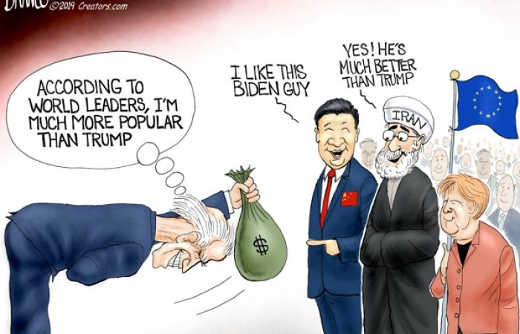The hardline President of Iran has died while in office, bringing chaos to the Iranian government but perhaps creating the opportunity to slightly modernize the government.
The helicopter carrying president Ebrahim Raisi crashed in a remote region of this beautiful but draconian country and he was recovered in pieces. Foreign Minister Hossein Amirabdollahian and several other government officials also perished. Raisi was a conservative leader famed for quashing revolts such as the hijab protests last year.
Raisi’s death comes at a critical moment. Largely silent under Trump, Iran is currently bolstered by what it perceives as quiet acquiesce from the Biden regime. Iran’s increasing bellicose acts, including the recent drone strikes on Israel, reveal an emboldened nation state, seemingly undeterred by the fact it is universally loathed by its neighbors and the West.
The reality is that while the mullahs look strong, the young population is deadset against them. In addition, ordinary Iranians are suffering through the US sanctions, despite the surprise release of $62 billion in frozen funds by the Biden Administration. The recent drone attacks served merely to rally nationalistic patriotism and were a risky call as only pressure from the international community deterred Israel from retaliating.
A massive funeral procession for Raisi has been held in Qom to demonstrate national solidarity but behind the scenes the mullahs, especially supreme leader, Ali Khamenei, are panicking. A placeholder replacement has already been identified. Mohammad Mokhber, 68, is Iran’s second-ranking official and Khamenei has appointed him as president temporarily since Iran’s constitution requires a new election to be held within 50 days of the death of a sitting president. Members of the Assembly are pre-vetted by Iran’s Guardian Council, a powerful 12-member body charged with overseeing elections and legislation who select from a shallow pool of pre-vetted, conservative candidates.
As a result, Iranians no longer vote. They see it as a waste of their time. However, it is hoped both within and outside Iran that Khameni will take this golden opportunity to loosen his hardline, brutalist grip, and allow some moderates to run in the upcoming election. No one is holding their breath. The reality is that until the supreme leader is replaced, little will change, especially on foreign policy.
What does the death of Iran's president in a helicopter crash mean for the country? @tparsi of @quincyinst says Iran's establishment will have to decide whether to open up the political landscape to possible outsiders or hold another "meaningless" election with no real contest. pic.twitter.com/Xwv9ONMHYP
— Democracy Now! (@democracynow) May 20, 2024
Great article here.

